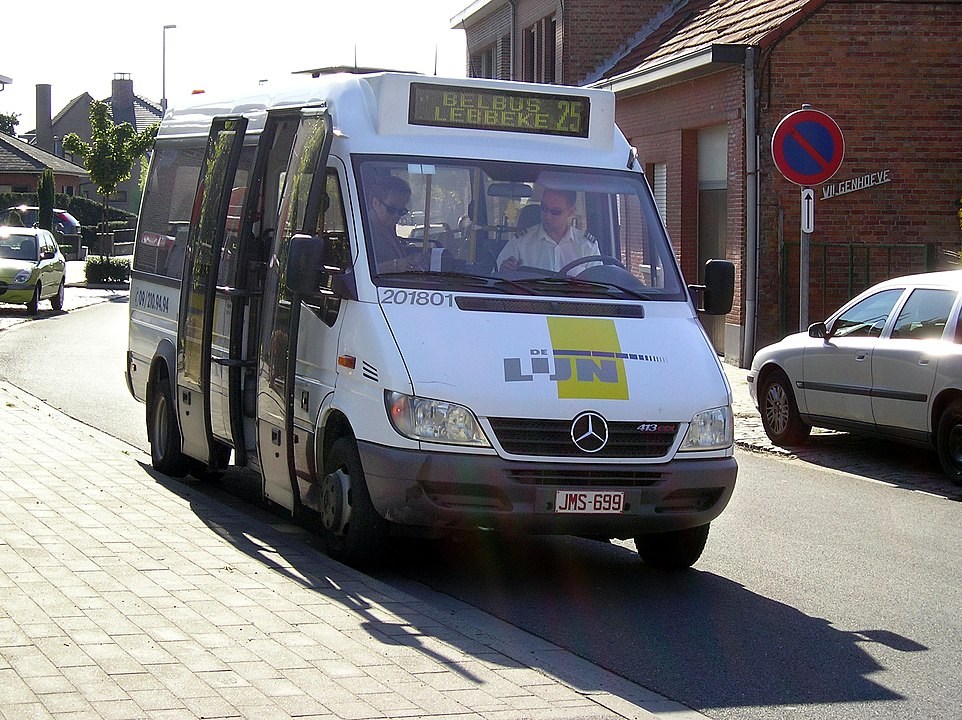Flemish public transport agency De Lijn has announced it will stop the BelBus service, which provided call-up bus services to people in areas not served by regular public transport.
The BelBus system was simple, if not entirely convenient. If you lived in an area there the buses and trams don’t run at all, or only sporadically, you could call in advance and make an appointment to be picked up by a BelBus. That would require some forward planning, as well as some exactitude in arranging the ride home later.
But the system had the disadvantage from De Lijn’s point of view of being irregular and therefore unpredictable. And the number of people using the service was never going to be sufficient to cover the cost.
However, BelBus made up part of the ‘basic reach’ of De Lijn, which successive Flemish governments have insisted on, despite having trimmed back certain services along the way. One that fell by the wayside, for example, was the commitment to have a bus stop within reach of everyone in the region.
The authority will continue to develop its network made up of city lines feeding into local bus services, but is now farming out what it calls ‘custom travel’ to an American bidder.
The Via corporation is headquartered in New York City and started in 2012 with a few vehicles, and now operates in five continents, and cities including Amsterdam, Berlin and London.
The Flemish regional environment is far from similar to an urban environment, but at least the BelBus experience, although loss-making, is there as a template.
Just as the BelBus, the new Via experience involves sharing a vehicle. What it misses, however, is a door-to-door trip. That was particularly important, for example, for elderly people who had to be in Antwerp or Leuven for a hospital appointment, and had mobility difficulties.
Now, they will have to make their way to the pick-up point.
Nevertheless, Via has picked up €100 million from the Flemish government to launch and run the new service, for a period of eight years.
For transport unions, the privatisation of an essential social service is no light-hearted matter. And they have made their views known to Flemish mobility minister Lydia Peeters (Open VLD).
“The countryside is going to bleed out with this system,” said Geert Witterzeel of the Christian trade union ACV.
“Do you see such a van driving somewhere deep in the Westhoek or somewhere deep in Limburg? How many people will there be who cannot go along with that system of apps and request online rides? Those who most need this type of bus ride are in danger of being left out.”

